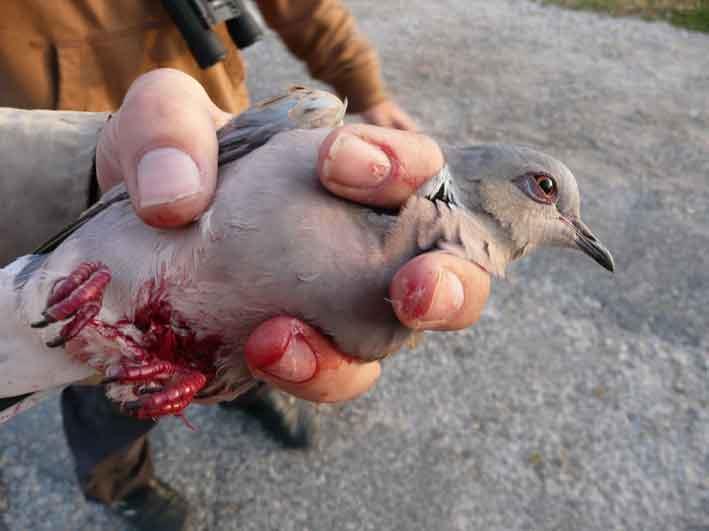Malta is obliged to reconsider its decision to allow spring hunting of European turtledove after the bird species was classified as a "vulnerable" species in Europe in the latest edition of the European Red List for threatened birds, BirdLife Malta said this morning.
The European Red List is a review of the conservation status of thousands of species of plants and animals which are found in Europe, according to the regional Red Listing guidelines of the International Union for the Conservation of Nature (IUCN).
It is published by the European Commission, but is the result of three years of work by a consortium led by BirdLife International, which is recognised by the IUCN as the recognised authority on birds.
There are 533 known bird species which are native to Europe, of which some 170 are linked to Malta.

Under IUCN criteria, lower-risk species are either classified as Least Concern or Near Threatened. There are three categories for threatened species - Vulnerable, Endangered and Critically Endangered, and what follows is either extinction in the wild - for species only known to exist in captivity - or outright extinction.
The latest Red List upgrades the status of 45 species, including 20 who are now considered to be of least concern. But it downgrades the status of 36 other species, including 29 which are now considered to be threatened.
The turtledove - specifically, the European turtledove (Streptopelia turtur) - is one of these 29 species. It had been previously considered to be a Least Concern species worldwide, but a significant decline in its population - as evidenced by the information EU member states provided under the terms of the Birds Directive - has seen it classified as a vulnerable species in Europe.
For the time being, it continues to be considered as a Least Concern species globally - its breeding range also extends to Turkey, the Middle East and North Africa - but the latest development may see its global conservation downgraded later this year.
 BirdLife Malta executive director Steve Micklewright noted that the species has suffered an 80% decline in its numbers since 1980, and said that its outlook was bleak if present trends continued.
BirdLife Malta executive director Steve Micklewright noted that the species has suffered an 80% decline in its numbers since 1980, and said that its outlook was bleak if present trends continued.
"We could see it becoming extinct in Europe within our lifetime," he warned.
Mr Micklewright noted that the Red List report highlighted a number of factors contributing to the decline of the species, pointing out that one of them is hunting.
A number of EU member states permit the hunting of turtledoves, but Malta is the only one which allows hunting in spring, as the birds migrate from their wintering grounds to breed.
BirdLife Malta's conservation manager Nik Barbara also highlighted that the legislation which allows the Maltese government to seek a derogation from the Birds Directive to permit the spring hunting of turtledove and quail - the legislation which was at the heart of the unsuccessful referendum to ban spring hunting earlier this year - specifically points out that the conservation status of the birds in question had to be taken into consideration.
In fact, Subsidiary Legislation 504.94 states that "the total number of quail and turtledoves which may be hunted during the spring hunting season of a particular year shall be set by the Minister [responsible for the environment]... taking into consideration the conservation status of the two species concerned and the maintenance of the population of the species at a satisfactory level."
Both Mr Micklewright and Mr Barbara said that the latest Red List vindicated the claims anti-spring hunting campaigners made in the run-up to the referendum: that turtledoves were in steep decline and that hunting them in spring was not sustainable.
Mr Barbara also noted that BirdLife Spain was pushing for a ban on the hunting of turtledoves in autumn, but when asked about BirdLife Malta's position, he said that the focus was on spring as this had the greatest impact on the species.
But Mr Micklewright then noted that if the species' decline continues, the future of autumn hunting would also be in question.